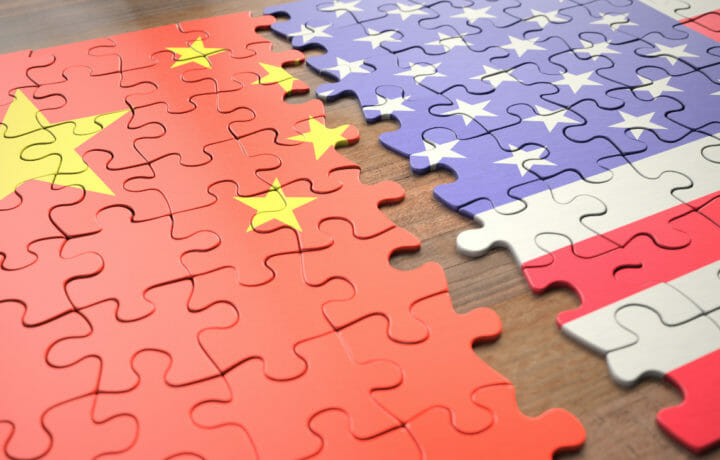On the heels of Speaker Nancy Pelosi’s (D-CA) congressional delegation visit to Taiwan, and amidst the largest display of Chinese weaponry discharged in the direction of Taiwan, designed to message and intimidate, the Chinese have canceled or suspended a number of bilateral engagements with the United States, many of which have national security implications.
According to the Chinese Ministry of Foreign Affairs, China will be immediately canceling or suspending joint participation in the following bilateral efforts, which they characterized as “countermeasures” in response to the Speaker’s visit to Taiwan:
- Canceling – China-U.S. Theater Commanders Talk
- Canceling – China-U.S. Defense Policy Coordination Talks (DPCT)
- Canceling – China-U.S. Military Maritime Consultative Agreement (MMCA) meetings
- Suspending – China-U.S. cooperation on the repatriation of illegal immigrants
- Suspending – China-U.S. cooperation on legal assistance in criminal matters
- Suspending – China-U.S. cooperation against transnational crimes
- Suspending – China-U.S. counternarcotics cooperation
- Suspending – China-U.S. talks on climate change
China-United States – Military to Military
China’s cancelation of the three military-to-military cooperation could have national security consequences given it reduces the level of engagement between the United States and China. To that end, the China-U.S. Defense Policy Coordination Talks (DPCT) have been in place since early 2005, designed to provide senior level dialogue in support of the China-U.S. Military Maritime Consultative Agreement (MMCA). The MMCA, in place since 1998, is meant to reduce the likelihood of an inadvertent incident at sea.
The readout from the December 14-16 2021 MMCA working group meeting which took place, virtually, between the U.S. and the PLA, was characterized by Maj. General Christopher McPhillips, Director for Strategic Planning and Policy U.S. Indo-Pacific Command as, “MMCA forum allows straightforward conversation to develop a common understanding on safe operational interactions between U.S. and PRC air and naval forces.” MMCA serves as a guardrail for military encounters to reduce risk in the air and at sea, helping the two sides manage competition responsibly. I am pleased we could have this dialogue.” The dialogue, which included “sustaining maritime and aviation operational safety and professionalism; reviewed safety-related events; and discussed the implementation and assessment of the “Rules of Behavior for Safety of Air and Maritime Encounters Memorandum of Understanding.”
With the cancelation of the DPCT and MMCA, the likelihood of an incident similar to that which took place in April 2001, when a U.S. EP-3E Aries II aircraft collided with a Chinese aircraft. The EP-3 was able to make an emergency landing on China’s Hainan Island. The 24 crew members were taken into custody and eventually released some 10 days later. It would not be until July 2001 when the dismantled EP3 was flown out of China.
China’s reaction to Speaker Pelosi’s visit included China declaring a number of closure areas surrounding Taiwan in which they are conducting live-fire exercises. According to the New York Times, “The six areas for China’s exercises were chosen for their importance in a potential campaign to seal off Taiwan and repel foreign intervention, Maj. Gen. Meng Xiangqing, a professor of strategy at the National Defense University in Beijing, said in an interview on Chinese television.”
The United States has postponed a scheduled intercontinental ballistic missile test launch according to Defense Secretary Lloyd J. Austin III so as to minimize the possibility for misinterpretation. That said, the U.S.S. Ronald Reagan is positioned some distance to the entrance to the Taiwan Strait, according to National Security Spokesman, John Kirby. Kirby continued how the U.S. would be resuming “freedom of navigation” movements, but not in the immediate future.
The ability for Defense Secretary Austin to communicate directly with the PRC Minister of National Defense, General Wei Fenghe remains in place. Indeed, in June 2022, Austin and Wei held one-on-one discussions in Singapore where they discussed improving crisis management. Those discussions have clearly been overtaken by events of the day. In addition, “The Secretary reaffirmed the importance of peace and stability across the Strait, opposition to unilateral changes to the status quo, and called on the PRC to refrain from further destabilizing actions toward Taiwan,” according to the Department of Defense readout in the meeting.




